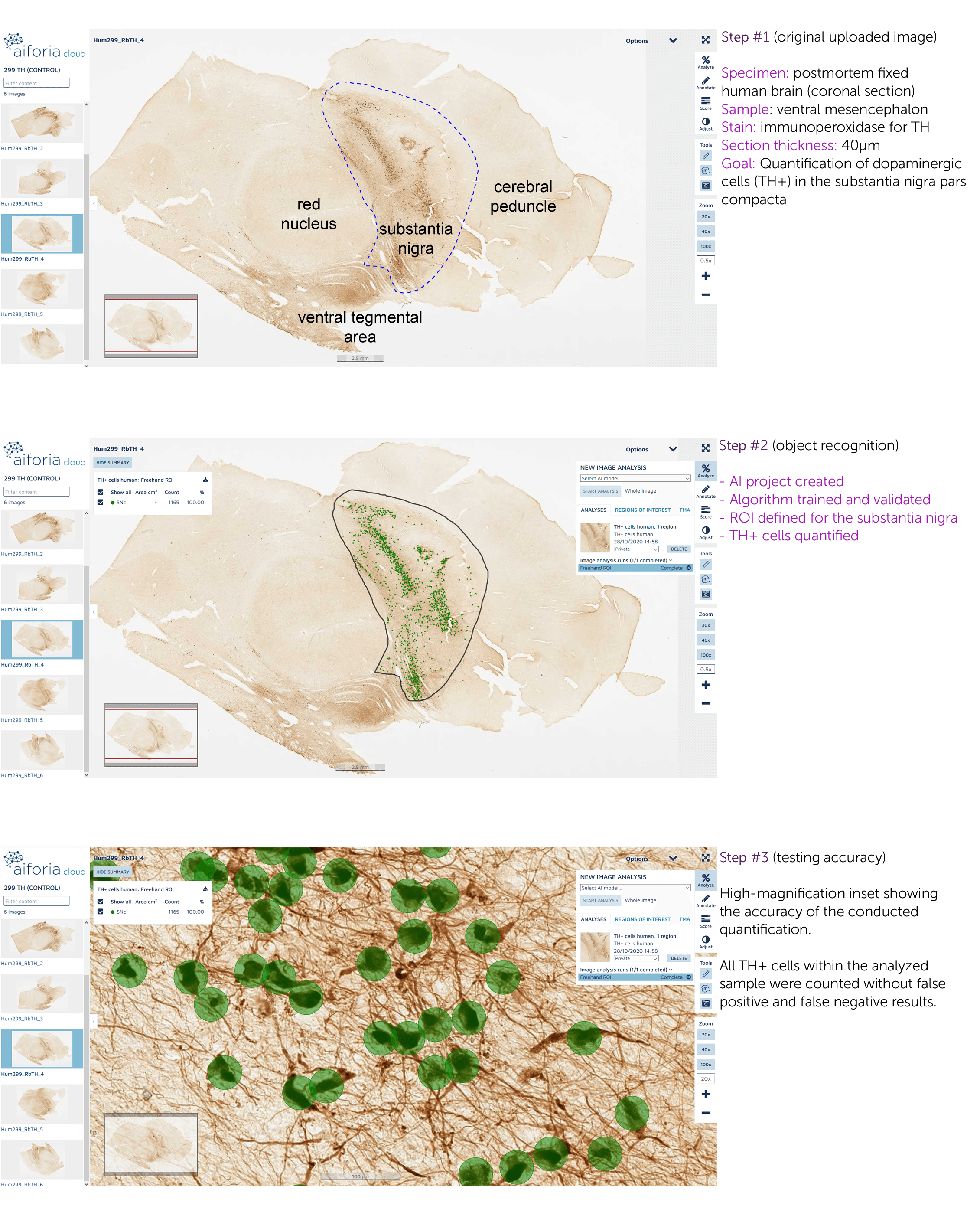Dr. Lanciego, Staff Scientist and Director of the Laboratory of Functional Basal Ganglia Neuroanatomy Center for Applied Medical Research at the University of Navarra, Pamplona, Spain, and his neuroscience research team are using Aiforia® Create to advance their research on the pathophysiology of neurodegenerative diseases such as Parkinson’s.
Aiforia Create has enabled them to develop AI models for the identification and quantification of TH-positive neurons in the substantia nigra pars compacta (SNc), neurons expressing mutated alpha-synuclein in the SNc, and neurons expressing green-fluorescent protein (GFP) throughout the entire brain. The team used postmortem human brain samples in their study; the provided images were 40 microns-thick coronal sections through the mesencephalon.
Read Dr. Lanciego's interview below.
How fluent are you with Aiforia’s AI software?
"Not an expert, since the amount of possibilities that this technology can provide you with, as long as you have an excellent command in the creation of algorithms, is almost infinite.
But, in terms of the subject on which I base my research, of course, I would consider myself an expert, given that I myself, together with the advice and support of Aiforia and my colleagues, generated the necessary algorithms or AI models to speed up our body of research in a way I had never done before."
Did you have prior experience with AI in your research or work?
"Not exactly. Artificial Intelligence has just effectively entered our research field, so I did not have the opportunity to work with AI before. However, I have been constantly informed about the new developments that the market was designing for other research fields."
How is Aiforia benefitting your work?
"I think it would be better if I shared with you how Aiforia has impacted our research with a practical example. My research team worked with human postmortem brain samples. As you know, our slices are multiple and of considerable thickness (40 microns), as well as double, so double the work.
It takes about 90 minutes to count the TH-positive from a single slice of the substantia nigra. Without considering that such an accounting is then reviewed by another researcher and consequently evaluated by yet another expert.
Visualize 90 minutes for each slice of each substantia nigra for dozens of scanned images...with Aiforia, 3 seconds per image, and I can do that in the airport, at home, or wherever I am."

"As I said, I am more than satisfied. Let me give you an example: In my first months using Aiforia, and after dozens of accounted cuts, I was a few days away from the presentation of results, and I was stuck in a process where I could not figure out how to solve it. I told Aiforia about the problem, and in one day, I was already in a video conference with two experts who guided me, step by step, to the achievement of the objective. So not only in terms of reliability but also in terms of support, it is excellent."
Read more neuroscience case studies: